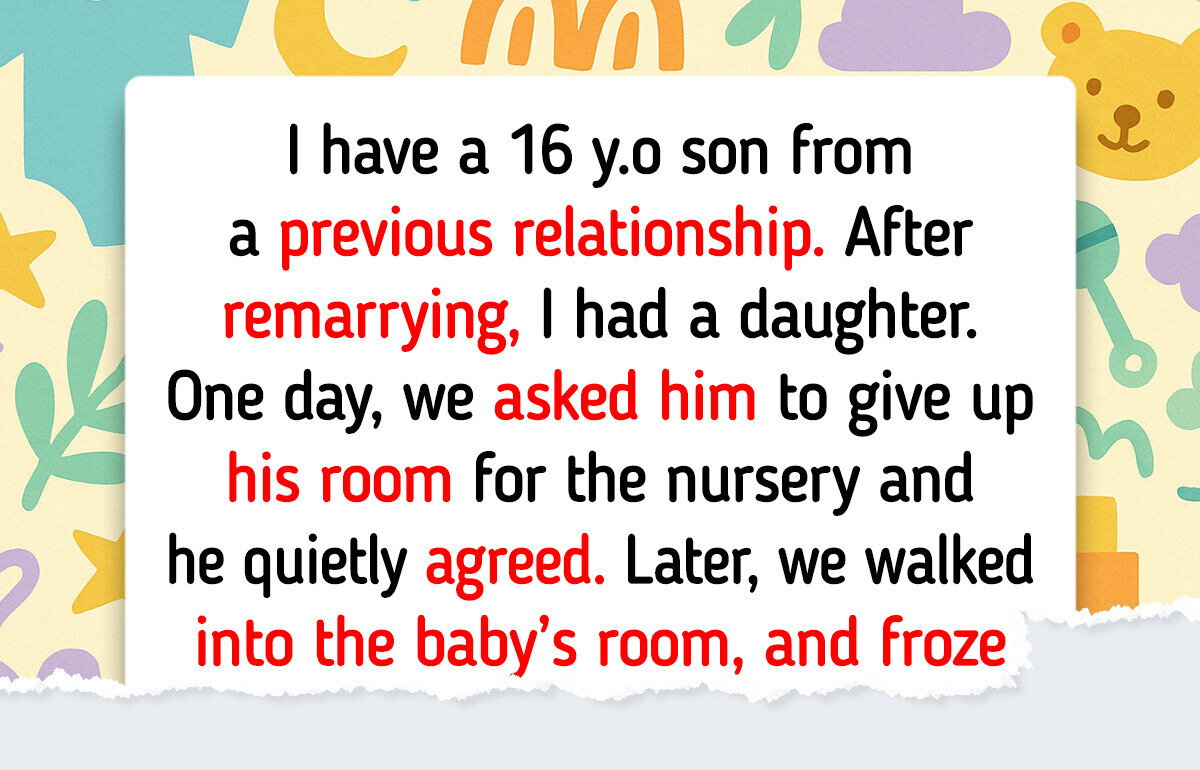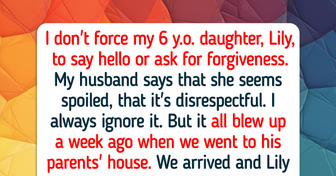I Refused to Move for a Couple, but I Wasn’t Expecting Their Payback


Having a teenager is like living with a storm—one moment, it’s calm and playful, the next, there’s a slammed door and thick silence. You make a simple, practical decision, and suddenly realize just how little you understand what’s really going on in their head.
I have a 16yo son from a previous relationship. After remarrying, I had a daughter. One day, we asked him to give up his room for the nursery, and he quietly agreed. Later, we walked into the baby’s room, and froze as we caught him secretly on the phone with my brother, asking him to come get him.
When my brother arrived, my son picked up his bag, looked at me, and said, “You can give it to your daughter now.” Then he walked out. I thought it was just for the night, but days passed with no word. He ignored all my messages, and when I went to my brother’s house, I wasn’t allowed in.
My family started calling me selfish. My brother said my son didn’t want to see me and laid out conditions if I wanted him to return: He had to come back willingly, we’d move closer to my family, he’d choose his room in the new house, I’d spend one-on-one time with him weekly. I agreed to all of it.
But when I told my wife, she was furious. She said the conditions were unreasonable and left with our daughter to stay at her parents’ house. Now her family is calling me selfish too.
What should I do? How do I fix this without losing one of them?
This is a deeply emotional and complex situation, and while there’s no perfect fix, here are some thoughtful pieces of advice to help you navigate it.
Make sure your child knows you’re interested in the topics they discuss. Let him know you’re working on a path forward, and that his needs do matter. Even if you can’t fulfill every request immediately, showing him he has a voice now may begin to mend the distance.
Suggest family counseling—not because anyone is “wrong,” but because you’re in a high-stakes situation where a neutral third party can help clarify emotions, rebuild trust, and avoid long-term resentments. Family counseling, or family therapy, is a method to develop and maintain healthy and functional family relationships. The goal is to identify and address problems in the family. These issues could be emotional, psychological, or behavioral.
Emotional validation is the process of learning about, understanding, and expressing acceptance of another person’s emotional experience. Your son, wife, and even your extended family are all reacting emotionally. That doesn’t mean they’re all right, but it does mean their feelings are real.
Acknowledge your son’s hurt, your wife’s frustration, and your own confusion. Don’t minimize or dismiss anyone’s emotions—including your own.
In the end, families aren’t about getting everything right — they’re about showing up when it matters most. You are still learning, still listening, and hoping to bring everyone back under one roof, with love at the center. Have you ever made a choice that pulled you in two directions — and how did you find your way back?











